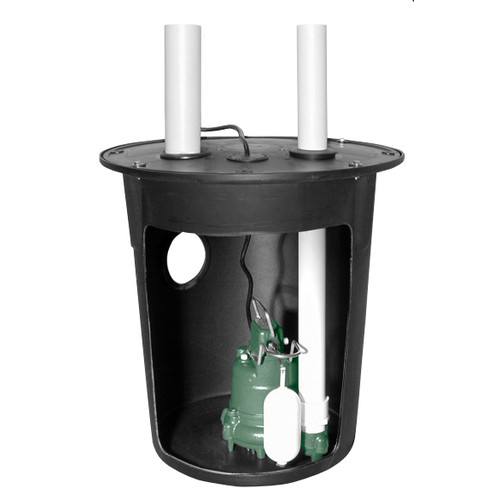Comprehending the Secret Elements of Effective Water Filtering Systems

Relevance of Water Purification Solution
Water filtering systems play an important function in ensuring access to clean and secure alcohol consumption water by effectively eliminating impurities and contaminants. These systems are necessary in resolving the expanding problems over water top quality and the possible health and wellness risks related to eating infected water. By using various purification devices such as reverse osmosis, turned on carbon, and UV sanitation, water purification systems can successfully eliminate damaging materials like microorganisms, viruses, heavy steels, and chemicals from the water.
Moreover, water filtering systems assist to enhance the preference and smell of water by eliminating chlorine, sediments, and other pollutants that can influence its quality. Water Treatment. This improvement in water top quality not just makes it extra palatable however also urges individuals to consume an appropriate quantity of water daily, promoting much better hydration and general health and wellness
Kinds Of Filtration Elements

Physical filters are developed to literally strain out impurities from the water. These filters can be constructed from materials like ceramic, carbon, or even sand, and they work by capturing bits bigger than the filter's pores as water passes with.
Chemical filters make use of different chemical processes to remove impurities from the water. Examples include triggered carbon filters, which adsorb contaminations, and reverse osmosis membrane layers, which use pressure to separate impurities from the water.
Organic filters make use of living microorganisms like bacteria or algae to damage down organic matter and contaminants in the water. These filters are usually used in wastewater treatment plants or natural water purification systems.
Understanding the different sorts of filtration elements is vital for selecting the most suitable water filtering system for certain filtration requirements.
Function of Sediment Filters
Debris filters play a crucial function in water filtering systems by successfully catching strong fragments suspended in the water. These filters are typically the very first line of defense in a purification system, getting rid of bigger particles such as sand, silt, dust, and rust prior to the water moves via finer filtering phases. By trapping these debris, the filters avoid them from reaching downstream parts, therefore extending the life-span and effectiveness of the whole system.
Overlooking this maintenance can lead to blocking, minimized water flow, and compromised filtering performance. Overall, sediment filters are crucial components that add dramatically to the performance of water purification systems.
Role of Activated Carbon Filters
Playing a crucial role in water purification systems, turned on carbon filters are crucial in eliminating impurities and pollutants from the water supply. These filters are made to adsorb and catch a large array of pollutants, including chlorine, unstable organic compounds (VOCs), chemicals, and herbicides. The activated carbon material has a big area, enabling for the effective trapping of pollutants through a procedure called adsorption. As water passes with the filter, the triggered carbon attracts and holds onto the impurities, making sure that the water that appears on the other side is cleaner and much safer for usage.
Turned on carbon filters are extremely efficient at enhancing the preference and odor of water by decreasing chemicals that can influence its quality. They are likewise with the ability of removing particular heavy steels like lead and mercury. In addition, these filters can help protect against the buildup of germs and algae in water, more improving its total top quality. Because of their convenience and reliability, view publisher site activated carbon filters are an essential element in ensuring that water is purified to the highest criteria prior to reaching consumers.
Recognizing Reverse Osmosis Equipments
Reverse osmosis systems are advanced water filtration systems that utilize an advanced procedure to published here eliminate impurities and impurities from alcohol consumption water. These systems work by using pressure to the water, forcing it via a semi-permeable membrane layer. This membrane functions as an obstacle, allowing only pure water particles to travel through, while obstructing larger particles such as minerals, chemicals, and various other pollutants. Consequently, the water that comes out beyond is dramatically cleaner and more secure for intake.
One secret advantage of reverse osmosis systems is their ability to get rid of a wide variety of contaminants, including hefty steels, liquified germs, infections, and solids. This makes them highly effective in improving the overall high quality and safety and security of alcohol consumption water. Furthermore, reverse osmosis systems are relatively low-maintenance and can be mounted under the sink or in a main filtering system, offering practical access to clean water throughout the house. Overall, recognizing just how reverse osmosis systems work can aid individuals make educated decisions regarding their water filtration demands.
Conclusion
In final thought, effective water purification systems are essential for making certain safe and tidy drinking water. The essential components of these systems consist of sediment filters, turned Check Out Your URL on carbon filters, and turn around osmosis systems. By understanding the feature and role of each element, individuals can make educated decisions when selecting a water purification system. It is essential to prioritize the high quality of water in order to promote general wellness and health.
Water filtering systems play a critical function in ensuring accessibility to risk-free and tidy drinking water by successfully eliminating pollutants and pollutants. By making use of different filtering systems such as reverse osmosis, activated carbon, and UV sterilization, water filtering systems can efficiently get rid of harmful substances like microorganisms, infections, heavy metals, and chemicals from the water supply.
Sediment filters play a critical duty in water filtration systems by efficiently catching strong particles suspended in the water (Water Treatment).Playing a vital role in water filtering systems, turned on carbon filters are crucial in removing pollutants and impurities from the water supply.Reverse osmosis systems are advanced water filtering systems that use an innovative process to remove pollutants and contaminations from drinking water